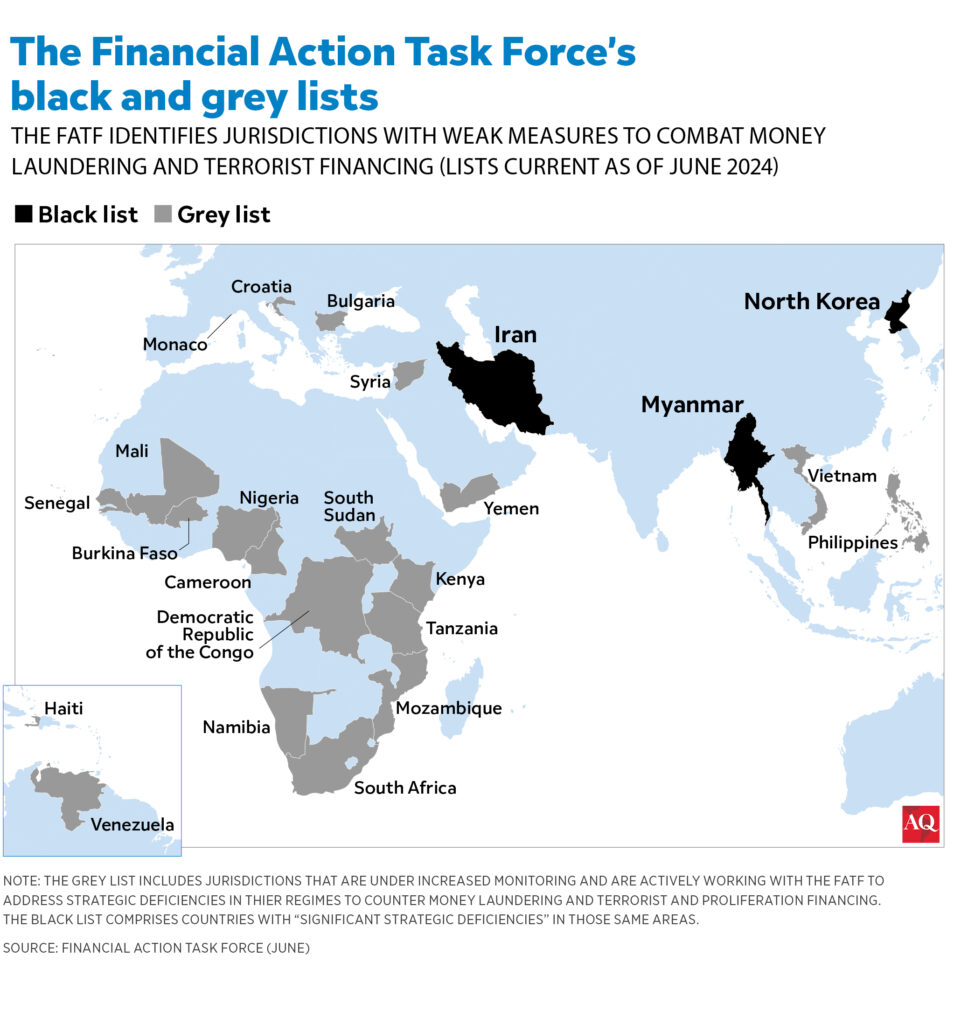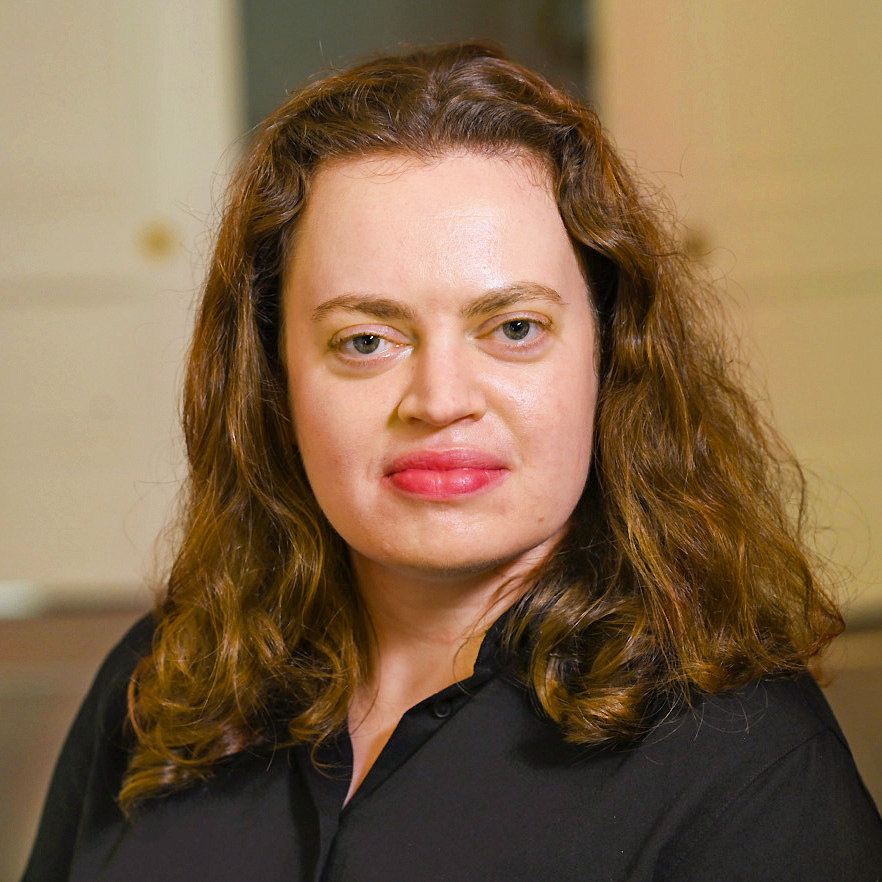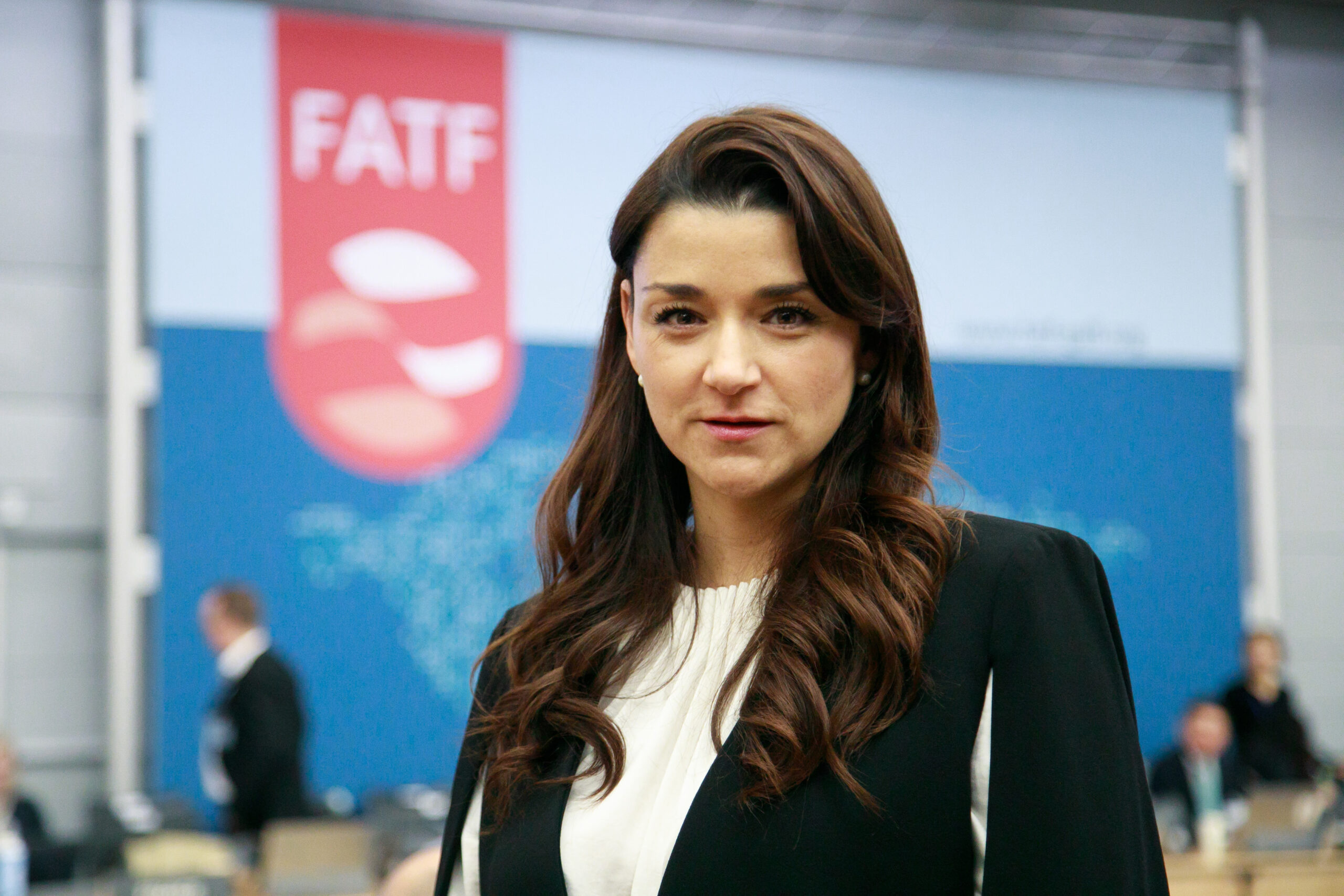Each year, criminals around the world launder as much as $1.6 trillion in transactions that evade global authorities and the ever-stringent oversight network. Despite substantial progress in combating the irregular movement of money worldwide, the challenge is even more pressing with the increasing use of cryptocurrencies and financial loopholes.
Three years ago, the United Nations called for urgent reforms in global finance, stating that money laundering was close to 2.7% of global GDP. U.S.-based Nasdaq found that in 2023, more than $3.1 trillion in illicit funds flowed through the world’s financial system.
A leading voice in confronting these issues is Elisa de Anda Madrazo, the new president of the Financial Action Task Force (FATF), the Paris-based organization tackling global money laundering as well as terrorist and proliferation financing. De Anda, a 42-year-old Mexican, is the second woman and fourth Latin American to lead the FATF in its 35-year history. A lawyer with two master’s degrees from Harvard University, she builds on a career that includes positions at Mexico’s Ministry of Finance and Public Credit. Since her two-year term began on July 1, she has aimed to promote financial inclusion and support low-capacity countries as they implement the FATF’s anti-money laundering and counter-terrorist financing standards.
Money laundering scandals, such as TD Bank’s guilty plea and $3 billion fine last week and a recent $2.2 billion case in Singapore, continue to crop up in high- and low-income countries alike. And high-profile investigations into money laundering have emerged in Latin America in recent years, from Brazil’s landmark Operation Car Wash to the Panama Papers.
Having a Latin American in the presidency might again bring some of the financial crime challenges that the region and other developing countries face “more to the forefront of the FATF agenda,” Julia Yansura, the program director for environmental crime and illicit finance at Washington-based FACT Coalition, told AQ.
De Anda began her public sector career in 2015 at Mexico’s Financial Intelligence Unit, an agency under the Ministry of Finance. She started working in government because she was “interested in looking at organized crime from the financial perspective,” De Anda said in an interview with AQ in August.
There, she focused mainly on bilateral issues between Mexico and the U.S., working as an attaché at the Mexican embassy in Washington from 2015 to 2019. She served as the head of Mexico’s delegation at the FATF and later as vice president of the organization, a position she held for three years, through June 2023. The Mexican government hailed De Anda’s election this February as a “victory” for the country’s financial diplomacy and a vote of confidence in the nation.
FATF and Latin America
Established by the G7 in 1989 to address money laundering, the FATF’s mandate has been expanded twice: once after 9/11 to combat terrorist financing and again in 2012 to prevent the financing of proliferation of weapons of mass destruction. Over 200 countries and jurisdictions have committed to implement the FATF’s anti-money laundering and counter-terrorist financing standards, including 40 members—mainly higher-income countries—as well as nations within the organization’s global network of nine regional bodies. Russia’s membership was suspended in February 2023.
To be considered as a potential candidate for membership, the FATF stipulates that a country should be “strategically important” in terms of GDP, population, the size of the banking sector, impact on the global financial system, and level of commitment to anti-money laundering and counter-terrorist financing efforts, among many other criteria. Indonesia was the latest country to become a member, joining in 2023.
The FATF sets anti-money laundering and counter-terrorist financing standards and evaluates their implementation through peer reviews, known as mutual evaluations. On average, these country assessments take almost two years to complete.
Using “grey” and “black” lists, the organization also identifies countries with weak anti-money laundering and counter-terrorist measures. The grey list includes jurisdictions under increased monitoring and actively working with the FATF to address their deficiencies in countering money laundering and terrorist and proliferation financing. The black list comprises with “significant strategic deficiencies” in those same areas.

On the black list are Iran, North Korea and Myanmar. The grey list, last updated in June, includes 21 countries, among them Venezuela and Haiti. In the past few years, several Latin American and Caribbean countries, such as Jamaica, Barbados, Panama and Nicaragua, were removed from the grey list.
The region, under the Buenos Aires-headquartered Financial Action Task Force of Latin America (GAFILAT), still has issues to solve. De Anda highlighted several anti-money laundering challenges that the GAFILAT flagged in a 2021 threat assessment: fiscal crimes (mostly tax evasion), corruption and bribery, and illicit trafficking (mainly related to drugs).
De Anda told AQ that in a recent meeting with GAFILAT officials, they identified several obstacles to combating and deterring these crimes in the region: transnational organized crime, asset recovery, virtual assets, and accessing information on beneficial ownership.
Assisting low-income countries
Some critics have noted that since the FATF applies the same recommendations to all countries, lower-income nations may be unable to implement these standards as effectively as high-income nations can. “All the links of the chain need to be working together,” including countries with great capacities, De Anda told AQ, “but also jurisdictions that have limited capacities, mostly low-income countries, some of them even in debt distress. We need to make sure everyone is on board.”
Under her presidency, De Anda expects that the FATF will guide low-capacity jurisdictions to implement its standards and consider their challenges, ensuring that all voices are heard when drafting standards. The FATF will invite jurisdictions from regions that do not have FATF members to participate as observers on a one-year rotating basis. De Anda is also making a point of connecting with the FATF’s global network, citing recent trips to Colombia and Kenya.
On the horizon
A new round of assessments is starting, and will include Mexico and Cuba, De Anda told AQ. In mid-2025, the FATF plans to release a new global threat assessment on terrorist financing and proliferation of weapons of mass destruction.
When asked about emerging trends in illicit finance, De Anda commented that cyber-enabled fraud is increasing and is “a challenge both in terms of the threat, but also in terms of the vulnerability to the extent that states are not ready to fight it.” Cybercriminals frequently use virtual assets, a sector that according to De Anda, Latin America is still starting to regulate and supervise.
“Something that is very interesting in Latin America is the engagement of the private sector” and its interest in complying, De Anda noted. The region’s lawyers, notaries, accountants, banking associations, and other financial institutions tend to be well-organized, which “allows governments to communicate well and to coordinate on implementation.” For De Anda, this is the region’s “huge strength.”






